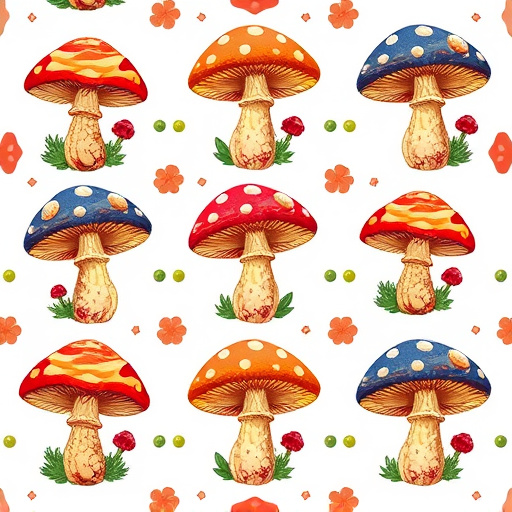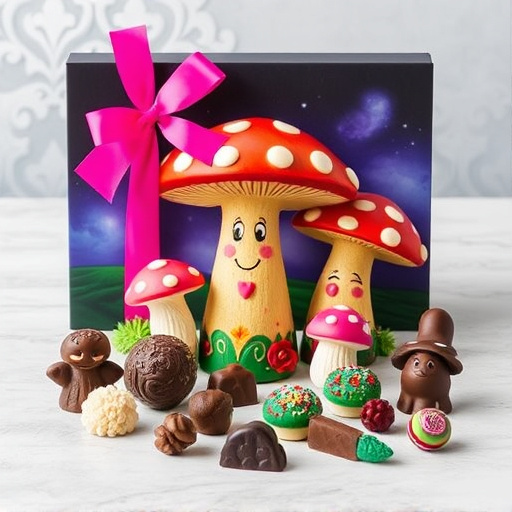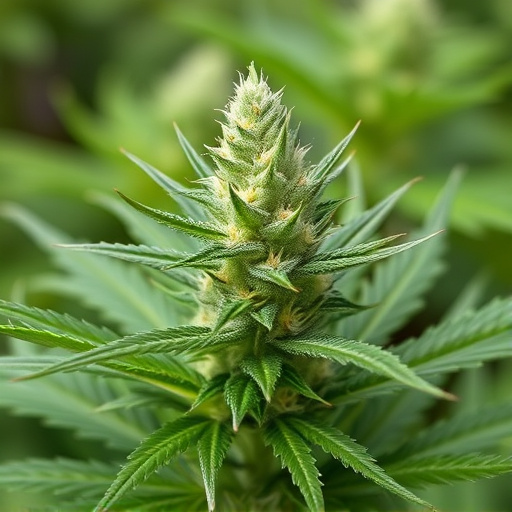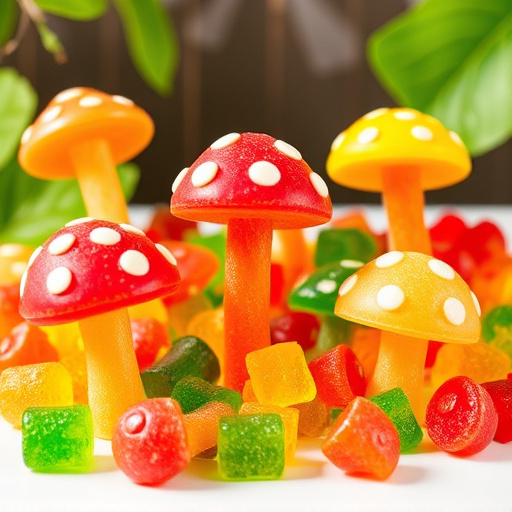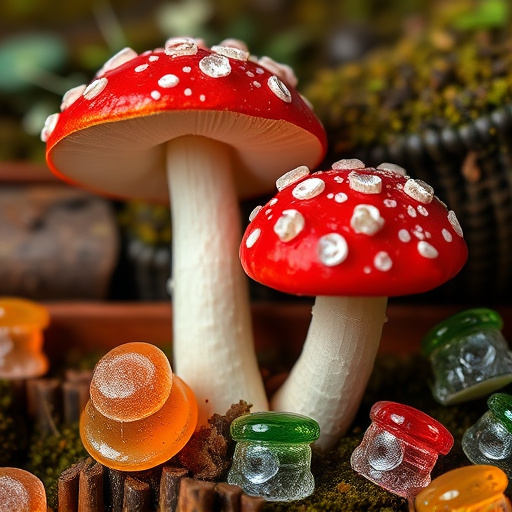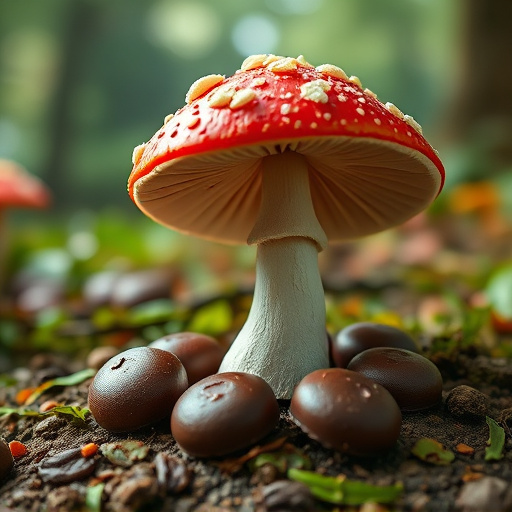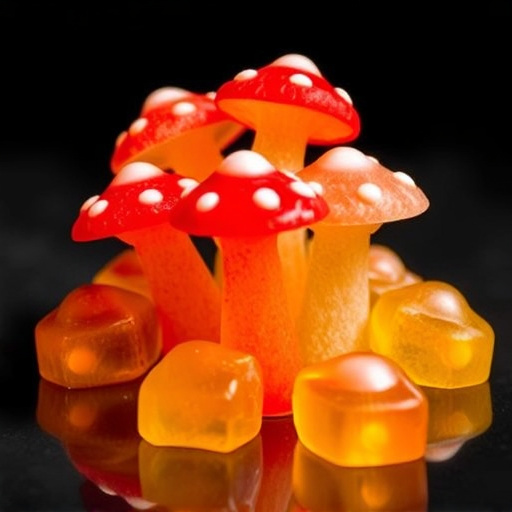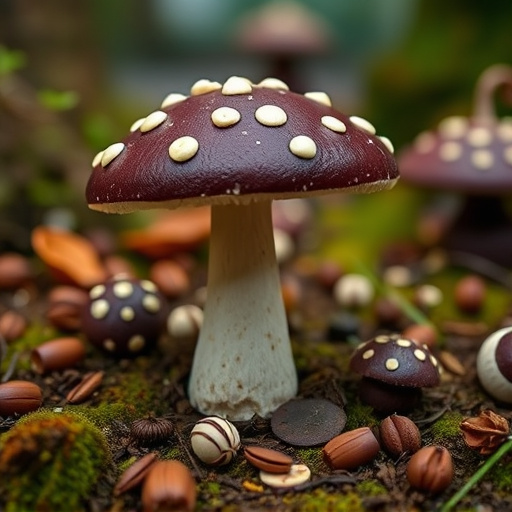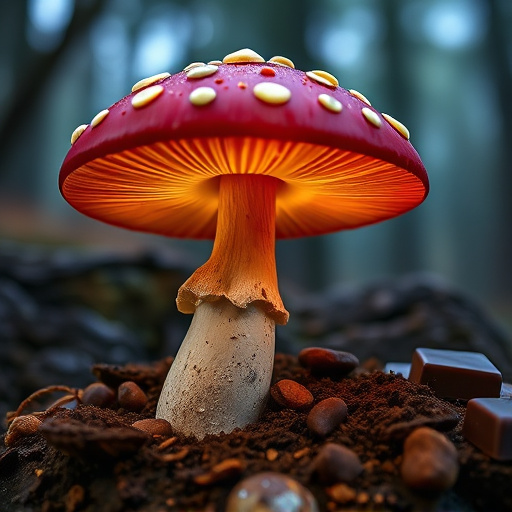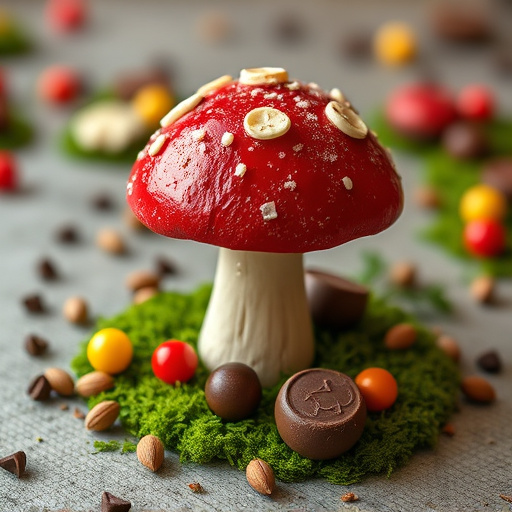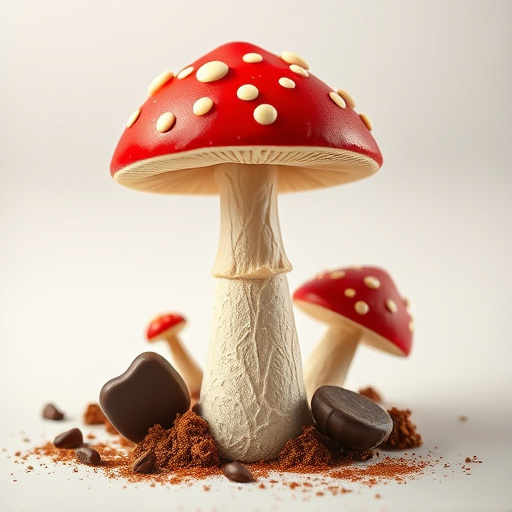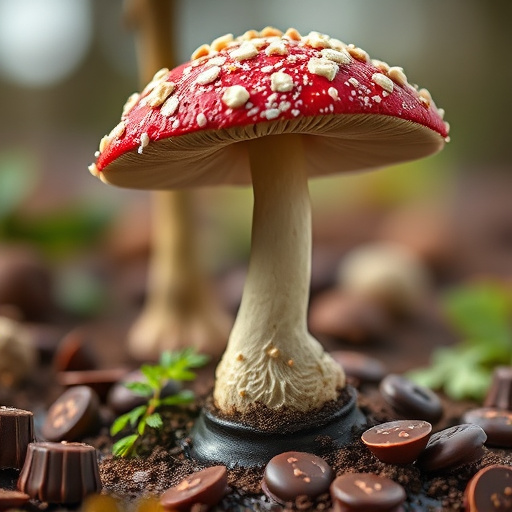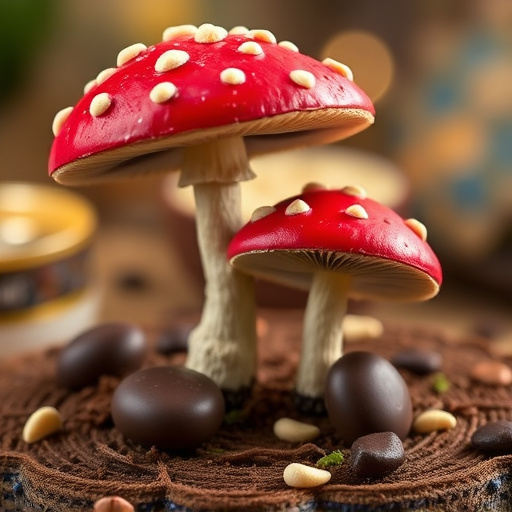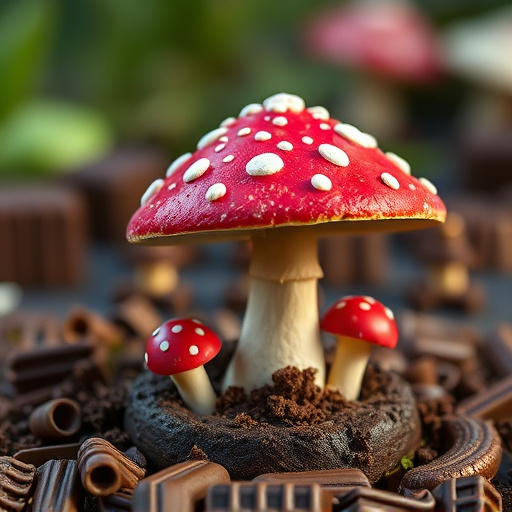Magic mushroom chocolates, containing psilocybin and psilocin, impact brain chemistry by interacting with dopamine systems, leading to potential therapeutic effects for anxiety and depression. Research suggests these compounds can increase dopamine levels, promoting neuroplasticity and improving mental health outcomes. Magic mushroom chocolates are explored as an accessible and palatable way to deliver therapeutic doses, offering a unique approach to psychedelic-assisted therapy.
“Unleash a burst of sensory delight with the enchanting intersection of vegan treats and psychedelic powerhouses—Magic Mushroom Chocolates. This emerging trend isn’t just about indulgent flavors; it’s a fusion of nature’s gifts, combining psilocybin (magic mushrooms’ active compound) with plant-based goodness.
In this comprehensive guide, we delve into the world of magic mushroom chocolates, exploring their scientific allure. From the dopamine-boosting effects of psilocybin to its potential therapeutic role in mental health, we uncover the magic within. Then, we navigate the vibrant landscape of vegan brands offering innovative, delicious treats, helping you choose wisely based on flavor and intended effects.”
- Understanding Magic Mushrooms and Their Effect on the Brain
- – A scientific perspective on magic mushrooms ( Psilocybin) and their interaction with dopamine receptors
- – Research on the potential therapeutic benefits for mental health
Understanding Magic Mushrooms and Their Effect on the Brain
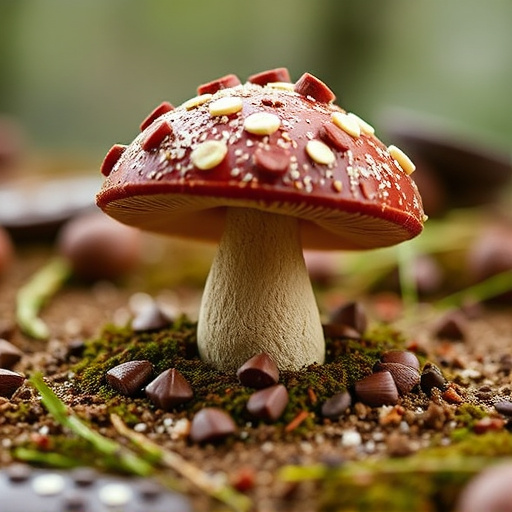
Magic mushrooms, scientifically known as Psilocybin mushrooms, have been a subject of fascination and study for their unique psychological effects. When consumed, they contain compounds called psilocybin and psilocin that interact with the brain’s serotonin receptors. This interaction can lead to altered states of consciousness, heightened sensory perception, and profound emotional experiences. One intriguing aspect of magic mushroom chocolates is how they might influence brain chemistry, particularly in relation to dopamine levels.
Dopamine, often referred to as the ‘feel-good’ neurotransmitter, plays a crucial role in reward, motivation, and pleasure. Some research suggests that psilocybin can increase dopamine activity in the brain, leading to intense sensations of euphoria and heightened pleasure. This effect could be particularly noticeable when consumed in a controlled, therapeutic setting. However, it’s essential to understand that the impact on dopamine levels is just one part of a complex neurochemical interaction, and individual experiences may vary significantly.
– A scientific perspective on magic mushrooms ( Psilocybin) and their interaction with dopamine receptors
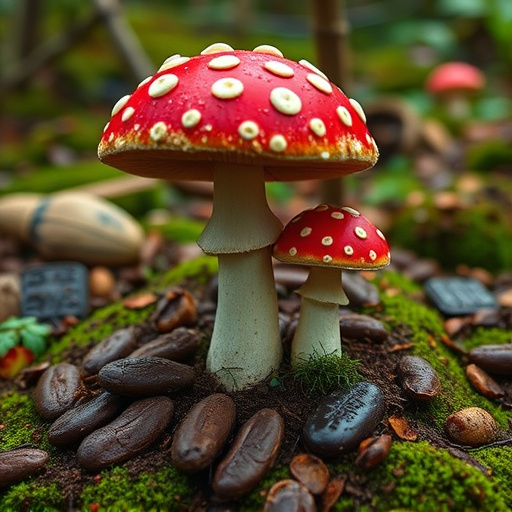
Psilocybin, the active compound found in magic mushrooms, has been a subject of scientific interest due to its unique interaction with the brain’s dopamine system. Dopamine is a neurotransmitter that plays a significant role in reward, pleasure, motivation, and cognitive functions. Research suggests that psilocybin can bind to dopamine receptors, leading to its psychoactive effects. When consumed, psilocybin is metabolized into psilocin, which actively interacts with these receptors, resulting in altered states of consciousness and heightened sensory perception.
This interaction has therapeutic potential, as studies indicate that magic mushroom chocolates or psilocybin-assisted therapy can help individuals manage anxiety, depression, and even end-of-life fear. By temporarily increasing dopamine levels and promoting neuroplasticity, these compounds may facilitate emotional healing and cognitive changes that contribute to improved mental health outcomes.
– Research on the potential therapeutic benefits for mental health
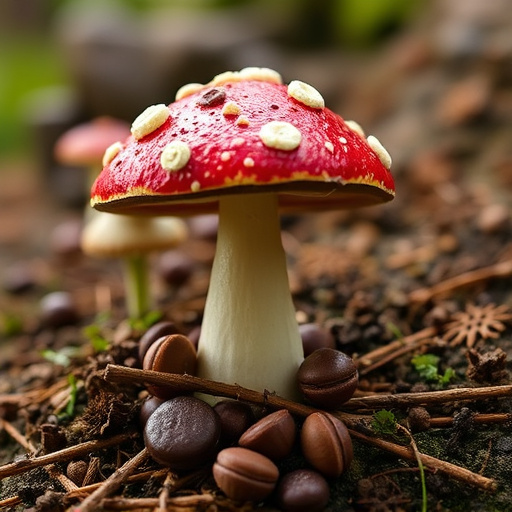
Research has explored the potential therapeutic benefits of magic mushrooms, specifically psilocybin, for mental health. Studies have shown that controlled doses of psilocybin can significantly improve symptoms of depression and anxiety, with effects lasting for months after treatment. One mechanism suggested for these improvements is the modulation of dopamine levels in the brain. Dopamine, a neurotransmitter often associated with pleasure and reward, plays a crucial role in mood regulation. The introduction of psilocybin may enhance dopamine activity, leading to positive changes in emotional states and cognitive functions.
These findings have opened doors for further exploration of psychedelic-assisted therapy, where magic mushroom chocolates could potentially be a new delivery method. By incorporating psilocybin into edible forms like chocolates, researchers aim to create an accessible and palatable way to deliver therapeutic doses. Such innovations hold promise not only for improving mental health outcomes but also for providing patients with a more enjoyable experience during treatment.
In conclusion, while magic mushrooms have shown promise in therapeutic settings due to their interaction with dopamine receptors, integrating them into consumable products like chocolate requires careful consideration. The market for vegan magic mushroom chocolates offers an exciting fusion of culinary delight and potential mental health benefits. However, it’s crucial to prioritize safety, quality, and regulatory compliance to ensure a positive experience for consumers interested in exploring this innovative treat.
